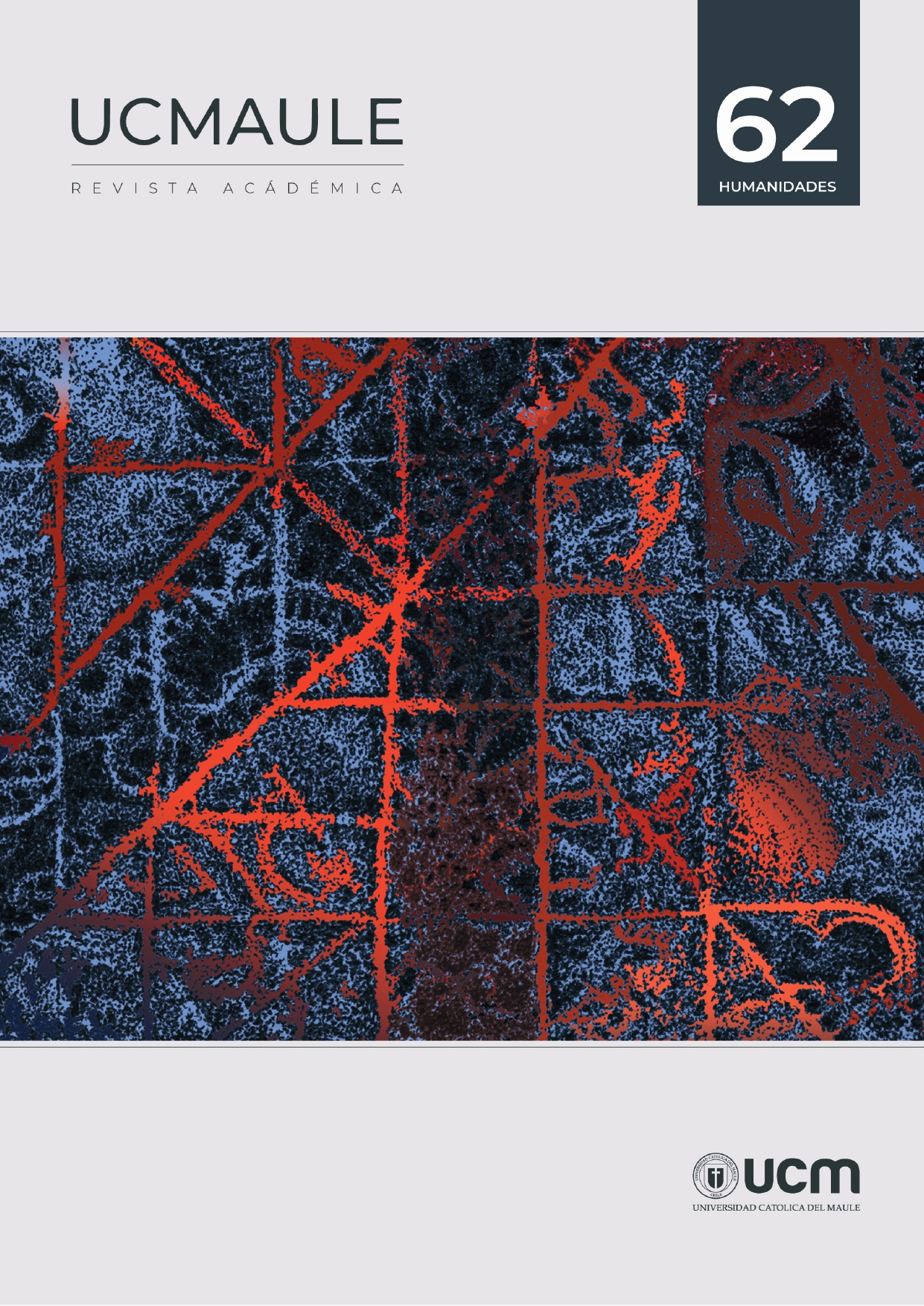Creencias de autoeficacia estudiantiles y docentes ¿Un vínculo inseparable? Propuestas para la intervención.
Contenido principal del artículo
Resumen
Detalles del artículo
Arreola Rico, R. L. (2014). El adolescente de secundaria: significados en torno a las competencias docentes socio-afectivas y su impacto en el aprendizaje y desarrollo. Tesis de Doctorado, Universidad Nacional Autónoma de México. Recuperado de https://tesiunam.dgb.unam.mx/F/AI6IUUD825C1YSL4B6H- 5K5XELCXL87FGRU6T8Q1IX2SVDANN5F-40226?func=full-set-set&set_num- ber=642269&set_entry=000001&format=999
Bandura, A. (1999). Auto-eficacia: cómo afrontamos los cambios de la sociedad actual. Desclée de Brouwer.
Bandura, A. (1986). Social foundations of thought and action. A social cognitive theory. Prentice Hall. [Trad. cast.: Pensamiento y acción. Fundamentos socia- les. Martínez Roca, 1987].
Barreto, F. y Álvarez, J. (2017). Clima escolar y rendimiento académico en estudian- tes de preparatoria. Daena: International Journal of Good Conscience, 12(2), 31-44. Recuperado de http://www.spentamexico.org/v12-n2/A2.12(2)31-44.pdf
Bolivar, A. (2014). Las historias de vida del profesorado. Revista Mexicana de Inves- tigación Educativa, 19(62), 711-734.
Denzin, N. (1970). Sociological Methods. A Sourcebook. Aldine Publishing Company.
Gibson, S. y Dembo, M. (1984). Teacher efficacy: a construct validation. Journal of Educational Psychology, 76(4), 569-582. DOI: https://doi.org/10.1037/0022-0663.76.4.569
Goodson, I., Biesta, G., Tedder, M. & Adair, N. (2010). Narrative learning. Routledge. Hoy, W. K. & Woolfolk, A. (1990). Socialization of student teachers. American Educational Research Journal, 27(2), 279-300. DOI: https://doi.org/10.3102/00028312027002279
Hoy, W. K. & Woolfolk, A. (1993). Teachers’ sense of efficacy and the organizational health of schools. Elementary School Journal, 93(4), 355-372. DOI: https://doi. org/10.1086/461729
Kavanag, D. & Bower, G. (1985). Mood and self-efficacy: Impact of joy and sadness on perceived capabilities. Cognitive Therapy and Research, 9, 507-525. DOI: https://doi.org/10.1037/0022-3514.67.3.499
Limón, M. (2004). Conceptual Change and the International Learner as outlined by Paul R. Pintrich. Electronic Journal of Research in Educational Psychology, 2(1), 175-184. DOI: https://doi.org/10.25115/ejrep.3.127
Linnenbrink, E. A. & Pintrich, P. R. (2002). Achievement goal theory and affect: An asymmetrical bidirectional model. Educational Psychologist, 37, 69-78. DOI: https://doi.org/10.1207/S15326985EP3702_2
Litt, M. (1988). Self-eficacy and perceived control: cognitive mediators of pain tole- rance. Journal of Personality and social Psychology, 54, 149-160. DOI: https:// doi.org/10.1037/0022-3514.54.1.149
Montero, I. & De Dios, M. (2004). About Paul R. Pintrich’s Work: self-regulation of motivational and cognitive processes in educational settings. Electronic Journal of Research in Educational Psychology, 2(1), 189-196. Recuperado de https://www.researchgate.net/publication/264666119_About_Paul_Pin- trich’s_work_self-regulation_of_motivational_and_cognitive_processes_in_ educational_settings
Panadero, E. y Alonso-Tapia, J. (2014). Teorías de autorregulación educativa: una comparación y reflexión teórica. Psicología educativa, 20, 11-22. DOI: https:// doi.org/10.1016/j.pse.2014.05.002
Pintrich, P. (1994). Student motivation in the college classroom. En Prichard, K. W. & Sawyer, R. M. (eds.), Handbook of college teaching: Theory and applications. Geenwood Press/Greenwood Publishing Group.
Pintrich, P. (2000). The role of goal orientation in self-regulated learning. En Boe- kaerts, M., Pintrich, P. R. & Zeidner, M. (eds.), Handbook of Self-regulation. Academic Press.
Pintrich, P. & Zeidner, M. (Eds.) (1999). Handbook of Self-regulation. Academic Press.
Pintrich, P. (2003). A Motivational Science Perspective on the Role of Student Moti- vation in Learning and Teaching Contexts. Journal of Educational Psychology, 95(4), 667-686. DOI: https://doi.org/10.1037/0022-0663.95.4.667
Prieto, L. (2007). Autoeficacia del profesor universitario. Eficacia percibida y prác- tica docente. Nárcea.
Prieto, L. (s/f). El análisis de las creencias de autoeficiencia: un avance hacia el de- sarrollo profesional del docente. Recuperado de http://ww.uky.edu/~eushe2/ Pajares/Prieto.doc
Sinatra, G. (2001). Knowledge, Beliefs, and Learning. Educational Psychology Review, 13, 321-323.
Sinatra, D. (2004). Paul R. Pintrich’s Contributions to Conceptual Change Research. Electronic Journal of Research in Educational Psychology, 2(1), 171-174.
Sinatra, G. (2005). The Warming Trend in Conceptual Change Research: The Lega- cy of Paul R. Pintrich. Educational Psychologist, 40(2), 107-115. DOI: https://doi.org/10.1207/s15326985ep4002_5
Schunk, D. (1989). Self-efficacy and achievement behaviors. Educational Psychology Review, I, 173-208. Recuperado de https://libres.uncg.edu/ir/uncg/f/D_Schunk_ Self_1989.pdf
Schunk, D. (2005). Self-Regulated Learning: The educational Legacy of Paul R. Pintrich. Educational Psychologist, 40(2), 85-94. DOI: https://doi.org/10.1207/ s15326985ep4002_3
Taylor, S. y Bogdan, R. (1984) Introducción a los métodos cualitativos de investigación. Paidós.
Zimmerman, B. (1999). Auto-eficacia y desarrollo educativo. En Auto-eficacia: cómo afrontamos los cambios de la sociedad actual. Desclée de Brouwer.
Zimmerman, B. (2000a). Attaining self-regulation: A social cognitive perspective. En Boekaerts, M., Pintrich, P. & Zeidner, M. (eds.), Handbook of self-regulation (pp. 13-40). Academic Press.
Zimmerman, B. (2000b). Self-Efficacy: An Essential Motive to Learn. Contemporary Educational Psychology, 25, 82-91. DOI: https://doi.org/10.1006/ceps.1999.1016
Zimmerman, B. (2001). Theories of self-regulated learning and academic achieve- ment: An overview and analysis. En Zimmerman, B. J. & Schunk, D. H. (eds.), Self-regulated learning and academic achievement (pp. 1-37). Lawrence Erlbaum Associates.

Esta obra está bajo una licencia de Creative Commons Reconocimiento-NoComercial-CompartirIgual 4.0 Internacional

